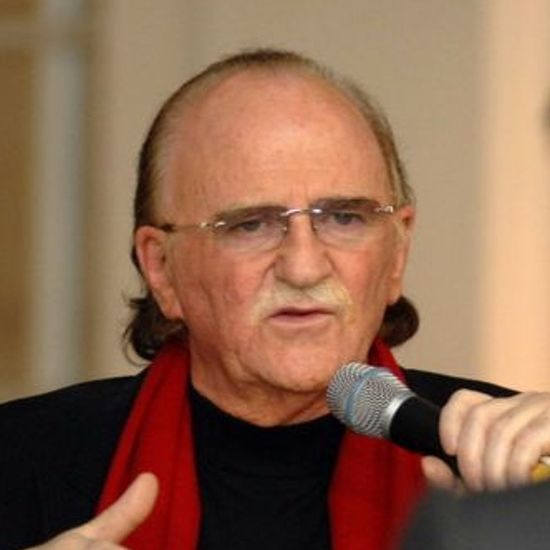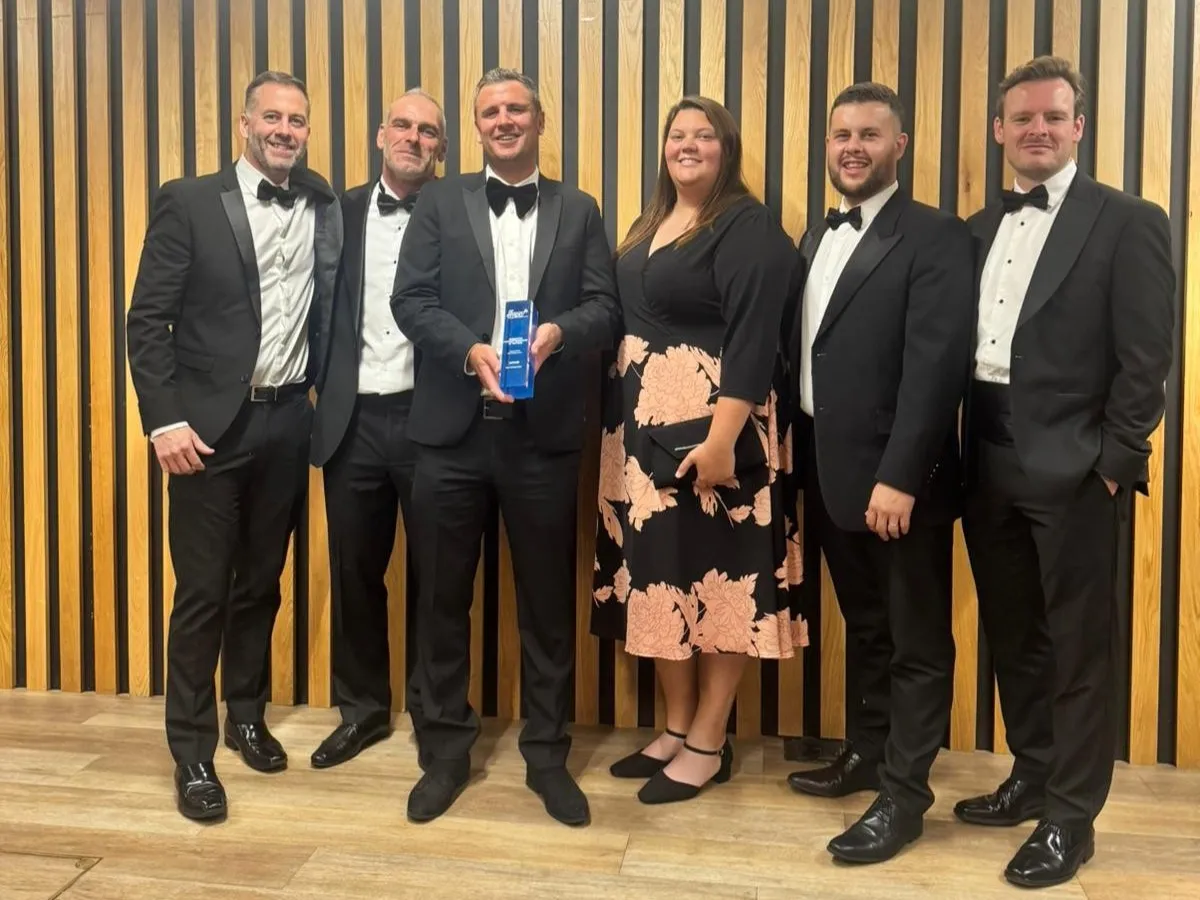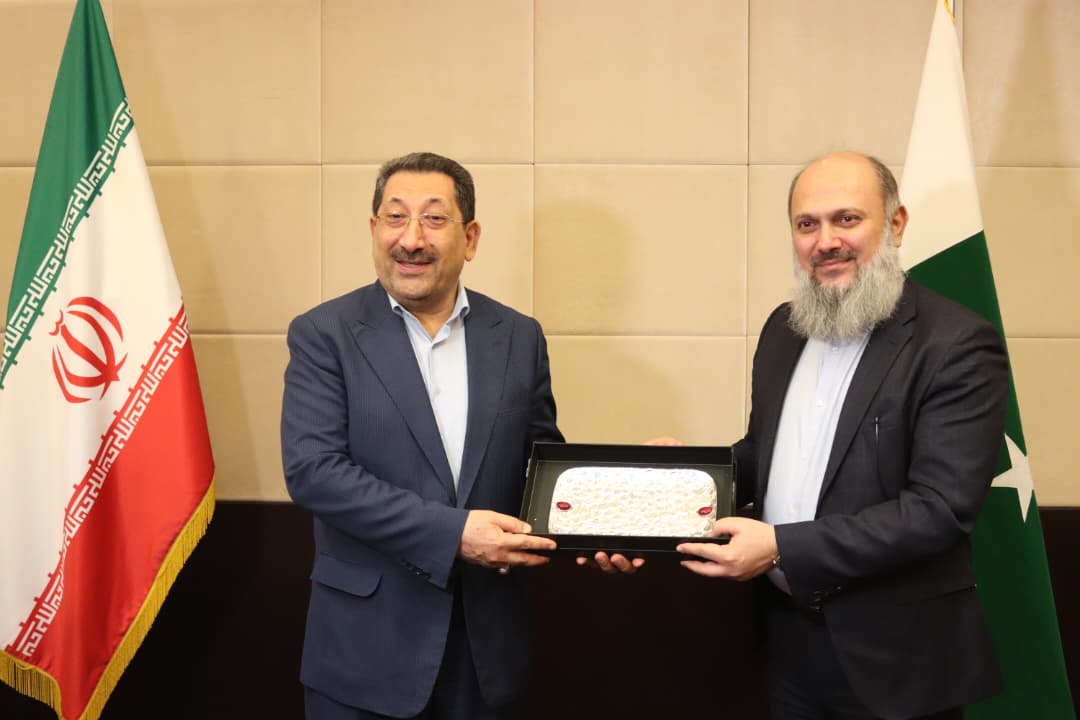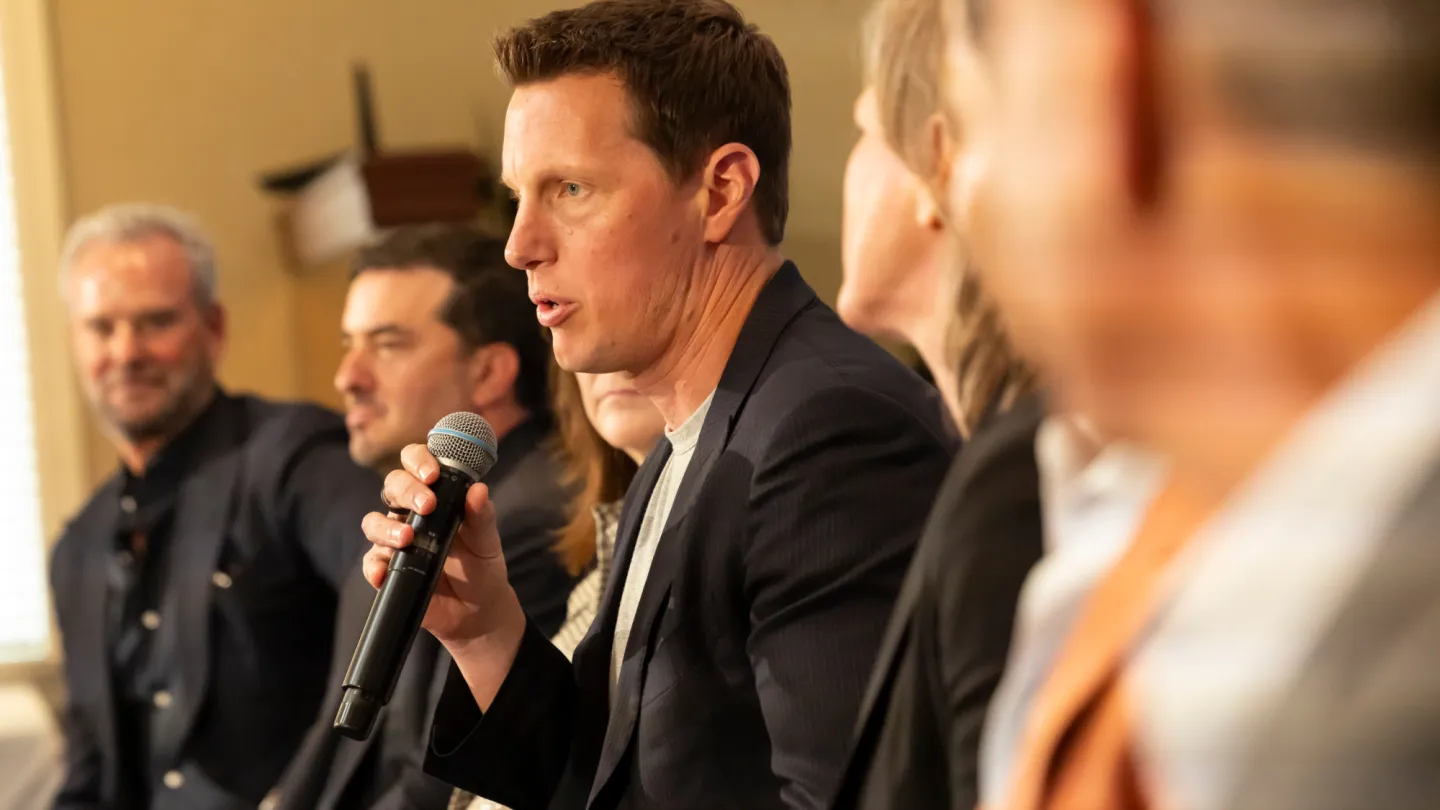Obituary: Nicky Ryan, music producer who created an ethereal ‘wall of sound’ that helped make Enya a superstar
By Liam Collins
Copyright independent

At his funeral celebration last week, the success of Orinoco Flow from Enya’s second album was -noted as the culmination of a “rags to riches” story for Ryan, who came from humble origins in East Wall, Dublin.
It enabled the Ryans and Enya to move from a small house in Artane, where they had lived for a decade and where the album Watermark (1988) was conceived in a home-made studio Nicky built in the back garden, to Killiney, where he lived until his death last week at the age of 79.
As a teenager in the 1960s, Nicky (Nicholas Dominic) Ryan won a music competition, the prize being a meeting with The Beatles. He never made the trip, however, because the family could not afford the fare to England. But in 1990, after the success of Orinoco Flow he shared the stage with his hero Paul McCartney at that year’s Grammy Awards in the Shrine Auditorium, Los Angeles.
During his lifetime, Nicky Ryan — described as someone who hated any fuss “but was fussy and a perfectionist” — mixed with pop stars, presidents and kings, and met Pope John Paul II.
However, “fame and fortune would not have impressed Nicky much”, his funeral service in the National Maritime Museum in Dún Laoghaire, was told last Monday.
He was born the youngest of -seven children in Caledon Road, East Wall. As a young lad he helped his father with his coal deliveries but always had an ear for music and as a schoolboy bought a reel-to-reel tape recorder to capture his older sisters and family friends singing.
After leaving school he got a job in St Mary’s school for the deaf, where he used his recording techniques to help students.
As a sound engineer, he worked with guitarist Gary Moore, Planxty and such diverse artists as Chuck Berry and Matt Molloy.
His memorial service was told when he once brought Christy Moore back to the family home for a visit, Christy handed his young nephews cash to buy sweets and lemonade. “It was the first £20 note they had ever seen,” Ryan said.
Around 1975, Fachtna O’Kelly, a young Evening Press reporter who had seen the folk group Clannad in concert, turned up with Ryan in tow with a proposition to manage them.
“We had a great evening together and became excited by Fachtna’s and Nicky’s enthusiasm for what we were doing,” Máire Brennan later recalled in her memoir The Other Side of the Rainbow.
I knew Enya could sing, so I brought her into the group
At that stage Clannad consisted of Máire, her brothers Pól and Ciarán and their uncles, Noel and Pádraig Duggan. Ryan travelled on two -European tours with them as a sound engineer and later became their manager.
When Ryan heard the Brennans’ younger sister, 18-year-old Eithne Ní Bhraonáin (Enya) sing, the dynamic changed.
“As far as I was concerned, they (Clannad) were kind of stale at this stage,” he later told Tony -Clayton-Lea in an Irish Times -interview.
“I knew Enya could sing, so I brought her into the group. It was my suggestion not Clannad’s. -Reluctantly she said she would join us. From that moment on I felt -responsible for her future.”
Enya was caught up in some tensions within Clannad, who felt Ryan and Roma had taken too much control, not only of their careers, but their music.
“Enya, if you want to be a star you stay with us. If you want to be a -nobody, you go with the Ryans,” Nicky recalled his protégé being told. She left the family band and moved in with the Ryans and their two daughters, Ebony and Persia, at their home in Danieli Drive in Artane, Dublin, in 1981, where she lived and worked on her music for more than a decade.
“I was sorry when the band business caused strain between us,” Máire said later.
As it happened, Clannad, without Enya, went on to have a smash-hit with Harry’s Game, the theme tune for a BBC thriller that went to No. 5 in the British charts in 1982.
The Ryans and Enya worked on in their homemade studio until film director David Puttnam used Enya’s music for his adaptations of The Frog Prince and the series The Celts. With Enya writing the music, Roma the lyrics and Nicky producing, they made Watermark (1988) and various albums until their second major success, A Day Without Rain (2000).
Their three-way partnership under the name Aigle Music Company, made their fortune, with Enya’s music recognised all over the world. In 1997 she paid £2.5m for Ayesha Castle in Killiney and was occasionally seen around the roads of “the Gold Coast” in a huge Maybach car — one of only three in Ireland at the time.
What was even more remarkable about the worldwide sales of their work is that Enya rarely performed or promoted the albums and, along with the Ryans, shied away from interviews or TV appearances. She did few live gigs, but memorably performed at the 2002 Oscars and at the National Stadium, Dublin. They -released their last collaboration, Dark Sky Island, in 2015.
Yet for all the talk about their -being “reclusive” myself and The Corrs manager John Hughes often encountered the trio in Peter Caviston’s tiny restaurant in Glasthule, Co Dublin, where they dined at lunchtime on Fridays, largely unnoticed among the tightly packed tables.
Ryan “never doubted his path in life”, according to Judith Cuffe, the celebrant at his memorial service, which opened with a choir singing The Beatles’ All You Need is Love. Described as “stubborn as they come” he worked for “days, weeks and months” on his musical -productions.
A story was told of him picking up the phone one day to Martin -Scorsese who was requesting permission for the use the song Marble Halls for his film Age of Innocence. After Ryan agreed, Scorsese said he would need to make some slight changes to the song.
“Nicky thought about it for a second, before telling him ‘no’ and Scorsese soon agreed to use the song as it was written and produced,” said his brother-in-law.
Apart from music, he had a profound interest in astronomy and would often wrap his daughters in blankets and take them out into the garden to look at the night sky. He also read extensively, was interested in art and regularly walked Killiney Hill.
“He was guided by a powerful source — his heart — a heart that had a faultless sense of direction,” his memorial serviced was told.
During the years of their collaboration, Enya won numerous music awards and accolades. Their compositions were used extensively in films, TV, and other medium, most recently Only Time, in the Liam Neeson version of The Naked Gun.
Among the songs played at his memorial service was Dark Sky –Island by Enya and Brian Ferry’s Avalon, which was inspired by a trip to Delphi in Connemara.
Nicky Ryan, who died in St Vincent’s Hospital on Wednesday, September 10, aged 79, is survived by his “wife, soul-mate and best friend for just short of 50 years” Roma, his daughters Ebony and Persia, and his “beloved friend and colleague” Enya.



